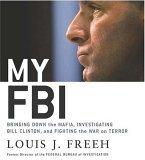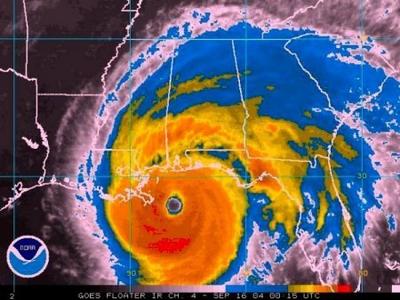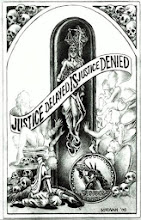Video Game: “25-To-Life” is A Clear and Present Danger to Child Welfare
Glorified cop killing is no game.
Peter [Parsons, Games Product Manager at Microsoft] has assured me that there will be crash models in the game for those sickos who live to see other things destroyed. I can’t wait to crash my supersonic jet into the Eiffel Tower.–
IGN Entertainment, Oct 7, 1999WHEN WE HEAR “25-TO-LIFE” we normally wouldn’t think of children’s games. But that’s exactly what the folks at Utah-based
Avalanche Software and Texas-based
Ritual Entertainment have developed for
Eidos to release next year. Sony and Microsoft have already secured licensing agreements for their game boxes.
Welcome to
25-to-Life, the realistic role-playing entertainment masterwork designed for young adults who spend their quiet time fantasizing about the mass murder of police officers.
“The streets are alive, with the sound of gunfire…”-GameSpy
With ghetto crimes set within an urban battlefield of liquor stores, subways, and traffic stops, Avalanche gives you the gritty look and feel of mass murder, without having to explode oneself while standing in a line of police recruits. The game offers all the exhilaration of bloody mayhem, and the only time served will be at your computer. (See the
video trailer)
But wait — that’s not all!
If you’re not in the mood for cop killing, Avalanche offers plenty of angry young black and brown stereotypes that are just begging to be blown out of their socks. And “since culture is a big part of the game,” writes game critic
Armchair Empire, “it’s mandatory that you’ll find a stellar hip-hop soundtrack…”
As the game scores the sticky carnage, players can pump-up the volume on the ACLU-approved hate-speak that features primitive classics from
Public Enemy,
Ghostface Killah,
Geto Boys,
Gangstarr, and
TechN9ne — all
Judas horses who inculcate their destructive pathology into non-achieving low-income service workers who are fascinated by the empowerment of murder. Featured tracks like “
Enemies” complete the experience. (As of this morning, the link no longer works. But here’s the
cache)
Avalanche Software insists that their game is not for kids. In fact, their demo is so graphic that Eidos requires children to lie about their age before logging on or buying it.
But don’t take my word for it.
The
graphics, content, and music are so depraved that the ACLU hasn’t yet defended it, and even senators from New York are
starting to complain — along with the parents of police officers.
“My son just joined the LAPD” says Rhett Mitchell, a technology manager for another Utah company. “All he wants to do is help others. What kind of people would create a game that glorifies the killing of my son and making his lovely wife a widow? What kind of people market games that give points for making my little grandson an orphan?”
Clear and Present DangerAs Mitchell describes the game he expressed his anger, and I thought about my own childhood when my friends and I played Cowboys and Indians. Shooting toy guns at make-believe villains didn’t drive any of us toward violence, and responsible parents and psychologists still agree on the importance of role-playing games in a child’s social development.
So what’s the big deal?
Unlike Cowboys and Indians, the damaging correlation between violent videogames and child development is
well documented. No rational person doubts how video games influenced and facilitated
Eric and Dylan as they trained for their rampage at Columbine High School. After killing or wounding 33 classmates and a teacher, they killed themselves as casually as two kids sharing a pizza.
As a result, communities across the US have criminalized hate speech and created no-tolerance zones so draconian that children, who have no violent disposition or history, have been expelled from school for acts as benign as
bringing scissors into a sewing class. Merely joking about bombs or hijacking at airports can result in missed flights and criminal charges.
So if these non-specific and largely unintentional acts are so dangerous, why hasn’t Congress criminalized the racism and violence actively used to promote video games, which indoctrinate hatred, desensitize our youth, and effectively train school-yard assassins?
The connection between LA’s 65,000 gang members and the media that glamorize them is
no secret. But gangsta rap and violence is big business, and with a target audience of children (12-15) and young adults (16-19) who also represent America’s most common victims of violence, media companies like Eidos ape Big Tobacco’s ethical mindset and ignore the nexus between adult content videogames, children, and violent crime.
To believe that
Eidos’ product line isn’t directed at children, one would have to imagine Hillary Clinton as a busty tomb raider and Howard Dean as a backyard wrestler. And if Eidos is marketing those games with Ann Coulter and George Bush in mind, why would they use soundtracks that
degrade women, hurt
young girls, and attract
children aged 12-16? The combination of music and video makes children and underdeveloped grownups their only possible targets.
So what demographic most prefers misogyny and violence to pass the idle hours?
The Federal Trade Commission found that more than
80% of M- & T-rated videogames were bought by children. Well-meaning legislators have
criminalized such sales to minors, but online retailers and piracy have rendered their good intentions unenforceable. The only evidence that contradicts history exists anecdotally – when young adults get educated, start careers, and become responsible citizens. That children have become the predominant class of violent criminals and victims suggests something more consistent with historical events and available data. And if the US Supreme Court’s standard of a
clear and present danger doesn’t apply to the 10,000-plus violent crimes reported in the US each day, I’m not sure what does.
Federal law also prohibits companies from providing material support and resources to individuals who prepare for certain criminal acts. Eidos’ we didn’t know defense is as lame as someone who drinks and drives, not realizing that the act might cause injury. A software company that deliberately markets homicide as entertainment to an audience that commits thousands of violent crimes each day must be at least as guilty, and reckless, as a drunk driver who doesn’t injure someone.
The absence of legislation or prosecution doesn’t take Eidos off the hook either.
When investigators learned that the 9/11 hijackers had used desktop flight simulators to practice their attack, Microsoft
modified and delayed the release of Flight Simulator 2002 out of their
sensitivity to victims. And even though federal authorities have found
no evidence of future general or commercial aviation attacks being planned, Microsoft still doesn’t offer graphic destruction such as the world witnessed on 9/11. Armchair pilots don’t need to crash 747s into buildings or see burning people jumping out of towers to make the simulator fun. And if one day’s loss of three thousand people can influence Microsoft’s software development, why can’t America’s
four million annual violent crimes influence Avalanche and Eidos?
Eidos doesn’t plan to release the game until next year. In the meantime, they’re using various strategies to promote their game online.
Mitchell hopes that the publisher will re-think their content, their audience, and their role as a responsible corporation.
I am in full agreement and supportive of his efforts. I certainly hope others will join me.
If the video gaming industry allows this company to go forward with marketing this game, they deserve any, and all, federal regulation that will be forthcoming, when the various law enforcement agencies, fraternal organizations, and unions come down around their shoulders. Crying won't do any good, as the publicity surrounding these kinds of graphics cannot withstand even the most prolific mainstream media promotions. More fodder for the moronic left to cling to, in hope of conversion of American youth. It won't fly!
My prediction: Even the extreme left is starting to rethink their abuse of the First Amendment, and the polls prove it, very well.
God Bless,
Dan'L









